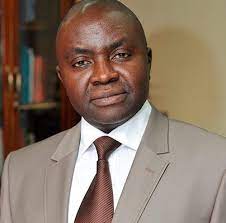Experts in Nigeria’s hydrocarbon resources industry foresee that the planned commitment of about $13.5 billion in upstream oil and gas investment by oil majors could serve as stimulus to help Nigeria achieve its 2.6 million barrels per day (mb/d) production target in the next three years.
President Bola Tinubu had expressed the readiness of the oil majors to invest US$13.5 billion in the short term following his recent meetings with senior executives from TotalEnergies, Shell and Exxon Mobil.
Following the promising funding outlook for the industry, the Nigerian Upstream Petroleum Regulatory Commission (NUPRC) had on Monday 1 January, 2024, announced an annual oil and condensates production target of 2.6 million bpd by 2026, an ambitious jump from 2023 levels of around 1.6 million bpd.
The Commission disclosed in its 2024-2026 action plan that it would direct development of oil assets to areas less prone to theft and vandalism and provided regulatory support for alternative crude oil evacuation routes.
To ensure coordinated activities in the upstream sector, oil firms require the NUPRC approval for new pipeline routes.
The NUPRC projected that Nigeria’s oil production would rise from 1.8 million bp/d this year and increase to 2.6 million bp/d in 2026
To meet this target, the Commission had been working to cut the cost of oil production to about US$20 a barrel, down from between US$25 and US$40, by providing incentives to oil producers.
The projection is coming after several months of Nigeria’s declining production due to crude theft and vandalism of pipelines in the Niger Delta as well as low investment in the sector, which has hit government revenue.
However, two of three consultancies tasked by OPEC+ to verify Nigeria’s output in November had predicted that that Nigeria was unlikely to achieve its own production target this year.
But then, the Commission stated that it “will set up a framework for crude oil and gas transportation and/or handling costs based on a standardised tariff (and) implement an open access regime for upstream oil and gas pipelines and ancillary facilities.”
According to the industry regulator, high signature bonuses – one-off fees paid to secure exploration blocks – will be reduced to attract more investment and raise oil production.
Commenting on the projection, an Economist and industry expert, Mr. Olusola Sunday, told our correspondent that “the target is desirable for the current drives by the government to improve the dwindling contributions of the oil sector to the gross domestic product (GDP).
“I think the government should, through regulatory measures and security machinery, make the sub-sector to be investment-friendly and by so doing arrest the growing rate of divestments of international oil companies from the industry”, the expert advised.




